How To Reduce Taxes For High Income Earners
At Avenue Investment Management, we understand that effective tax planning is crucial for preserving and growing wealth. As fiduciary advisers, we focus on sophisticated tax reduction strategies that go beyond basic RRSP and TFSA contributions, helping high-income earners optimize their tax position through quality investments and strategic planning.
Income Splitting Strategies
Tax planning and investment management work hand in hand to create effective income splitting strategies. Our approach focuses on legitimate, sustainable methods that align with current tax regulations.
Spousal Loans and Prescribed Rates
Strategic use of spousal loans can create tax-efficient income splitting opportunities:
- Structured loans at prescribed rates
- Documented arrangements that meet CRA requirements
- Regular interest payments and proper documentation
- Long-term tax advantage potential
Family Trusts
Family trusts remain a powerful tool for high-income earners when properly structured:
- Income distribution flexibility
- Intergenerational wealth transfer
- Asset protection benefits
- Tax-efficient distribution strategies
Dividend Sprinkling Rules
Understanding and navigating the Tax on Split Income (TOSI) rules is crucial for high net worth individuals. Our approach includes:
- Strategic assessment of family business structures
- Identifying qualified excluded shares
- Evaluating reasonable return standards
- Implementing compliant distribution strategies
Tax Efficient Investing
Our approach to minimizing taxes in investment portfolios focuses on quality investments and strategic positioning to optimize after-tax returns.
Capital Gains and Interest Income
We help clients structure their portfolios to maximize tax efficiency through:
Strategic Asset Location:
- Placing interest-bearing investments in tax-sheltered accounts
- Positioning growth investments for capital gains treatment
- Building lower turnover portfolios
- Implementing systematic tax-loss harvesting
Investment Selection:
- Focus on quality investments that support long-term holding periods
- Strategic use of corporate class investments where appropriate
- Careful consideration of investment turnover
- Balance between tax efficiency and investment objectives
Flow-Through Shares
For suitable investors, flow-through shares can provide significant tax advantages:
- Understanding eligibility and suitability
- Evaluating investment quality beyond tax benefits
- Managing timing and holding periods
- Integrating with overall portfolio strategy
Estate Planning and Intergenerational Transfers
Effective tax and estate planning requires a comprehensive approach that considers both immediate tax efficiency and long-term wealth transfer objectives.
Life Insurance for Tax Planning
Strategic use of life insurance can provide significant tax advantages:
- Tax-exempt investment growth within insurance policies
- Estate tax liability funding
- Corporate tax planning opportunities
- Efficient wealth transfer mechanisms
Freeze and Crystallization Techniques
Estate freezes and crystallization strategies can help optimize tax outcomes:
- Locking in current values for capital gains purposes
- Transferring future growth to next generations
- Utilizing lifetime capital gains exemption
- Structured approaches to business succession
Individual Pension Plans
For high-income business owners and executives, Individual Pension Plans (IPPs) offer sophisticated retirement and tax planning opportunities. Through our comprehensive financial planning approach, we help clients evaluate and implement these strategies.
Key Advantages:
- Higher contribution limits than traditional RRSPs
- Tax-deductible contributions for corporations
- Enhanced retirement benefits
- Potential past service contributions
Implementation Considerations:
- Actuarial valuations and compliance requirements
- Integration with existing retirement planning
- Cost-benefit analysis for your situation
- Long-term commitment evaluation
Income Retention for Private Corporations
Understanding how to manage your wealth within a corporate structure is crucial for business owners facing higher taxes. Our strategies include:
Corporate Structure Optimization:
- Strategic use of holding companies
- Investment income planning
- Salary versus dividend optimization
- Capital dividend account management
Active Business Income:
- Small business deduction planning
- Income thresholds management
- Associated corporation considerations
- Strategic timing of distributions
Common Pitfalls and Reasons for Audit
As experienced wealth managers, we help clients navigate potential tax compliance issues while maximizing legitimate tax reduction strategies:
Areas of Focus:
- Documentation and record-keeping requirements
- Reasonable compensation standards
- Related party transaction documentation
- Investment income classification
Risk Management:
- Regular compliance reviews
- Proactive planning adjustments
- Professional coordination
- Ongoing monitoring and updates
Frequently Asked Questions
DONT DELETE THIS
Your content goes here. Edit or remove this text inline or in the module Content settings. You can also style every aspect of this content in the module Design settings and even apply custom CSS to this text in the module Advanced settings.
What tax strategies are most effective for high-income professionals?
The most effective strategies typically combine multiple approaches, including corporate structure optimization, investment tax efficiency, and strategic income splitting where appropriate. The key is developing a comprehensive plan that considers your specific situation, income sources, and long-term objectives.
How can I balance tax efficiency with investment quality?
At Avenue, we focus on quality investments first, then structure them for tax efficiency. This means selecting high-quality investments that align with your long-term goals while implementing strategies like strategic asset location, tax-loss harvesting, and proper corporate structure utilization to enhance after-tax returns.
When should I start planning for tax-efficient wealth transfer?
Tax-efficient wealth transfer planning should begin well before it’s needed. Early planning provides more options and opportunities for optimization. This includes estate freezes, family trusts, and life insurance strategies that can take years to implement effectively.
Have More Questions?
Building Your Tax-Efficient Wealth Strategy
Effective tax reduction for high-income earners requires sophisticated planning and careful execution. At Avenue Investment Management, we combine our tax expertise with our commitment to quality investments and long-term wealth preservation. Our independent approach ensures we focus solely on strategies that serve your best interests.
Contact us to discuss how we can help optimize your tax position while building and preserving your wealth for the long term.
